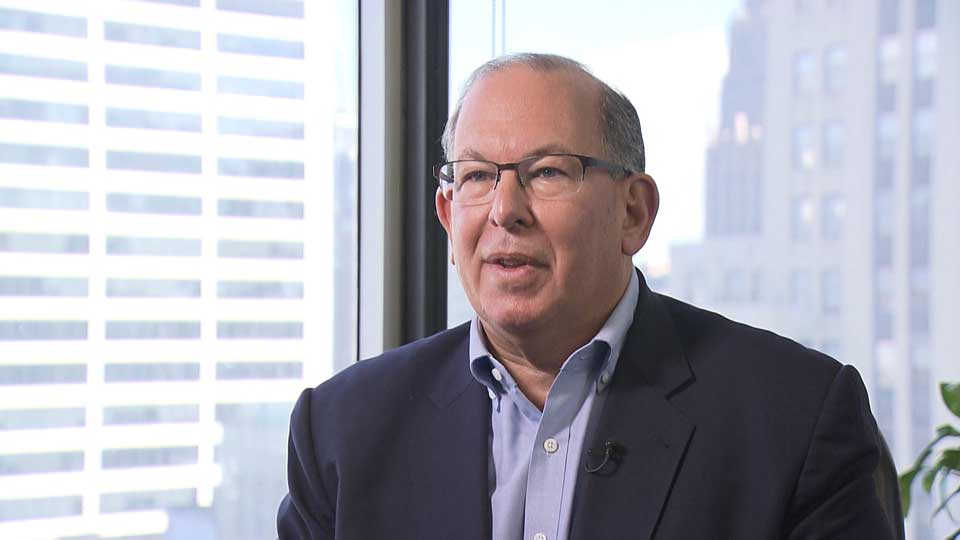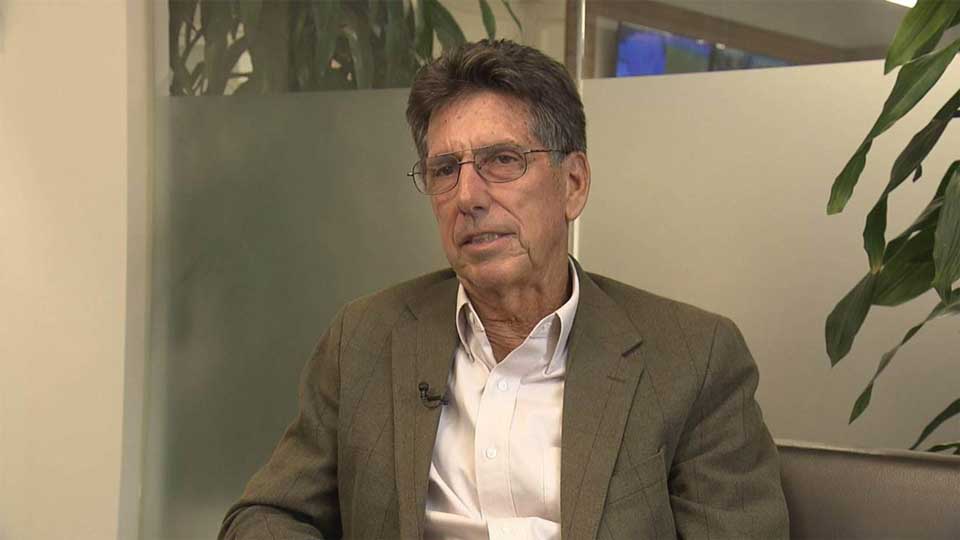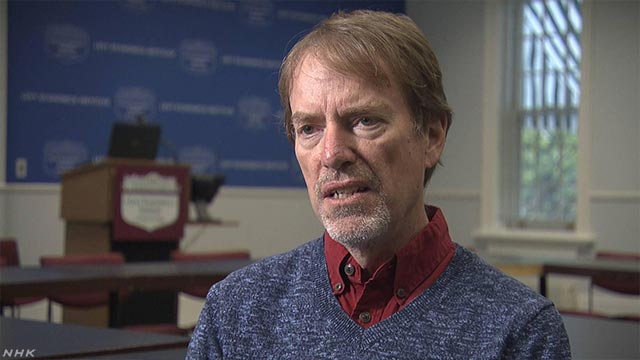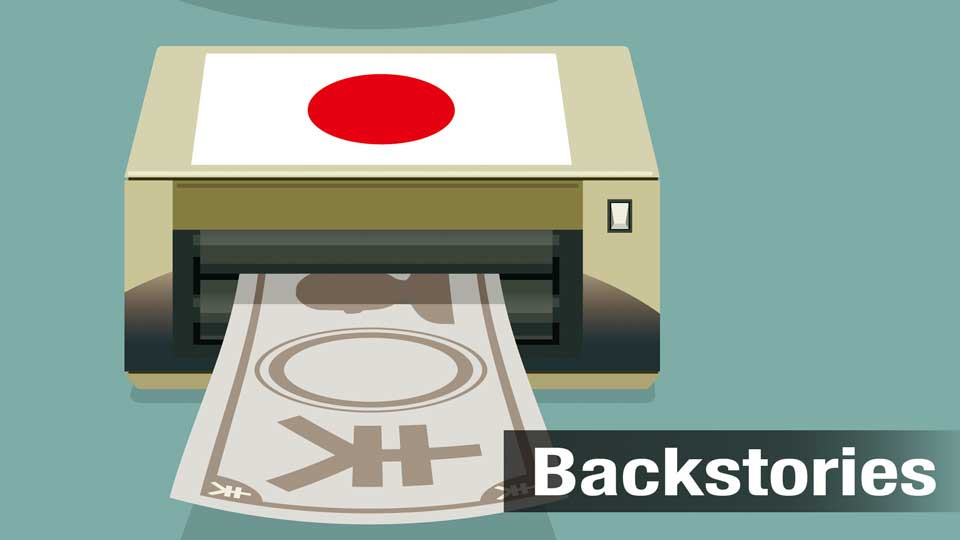What is MMT?
In essence, MMT says a country that issues its own currency doesn't have to worry about building up too much debt and then defaulting, as it can always issue more money to pay it back. Advocates encourage such nations to spend big to spur growth and achieve full employment.
Many mainstream economists criticize the theory. They argue government spending may be necessary at times, such as when the economy is struggling. But spending without limit and printing money to cover the bill would cause interest rates to rise and lead to hyperinflation.
Former US Treasury Secretary Laurence Summers has called it "fallacious." US Federal Reserve Chairman Jerome Powell simply says the idea is "just wrong."
Why does MMT matter?
The unconventional theory is not just a focus of debate in academic circles -- it has become a hot topic among many Americans and has inspired politicians.
Democratic presidential candidate Bernie Sanders had leading modern monetary theorist Stephanie Kelton join his 2016 campaign as an economic advisor.
Democrat congresswoman Alexandria Ocasio-Cortez recently drew more attention to the theory by saying that it should be "a larger part of the conversation."
And that is exactly many what people on Wall Street are now doing. Daniel Alpert, a managing partner at Westwood Capital, says more market players are looking to MMT as President Donald Trump's economic policies seem to embrace the theory. His tax cuts have widened the US deficit but the country's economy has continued to expand and inflation remains weak. The investment banker calls the president "one of the great professors of MMT."

Warren Mosler, another primary economist in the MMT circle, says it's perfectly natural that Wall Streeters are catching on. He says "it makes sense to them" because they're realizing that fiscal policy works and monetary easing doesn't.
Although the majority would likely agree with mainstream economists, MMT is gaining traction, particularly among younger generations who feel austerity has made life harder for them.

Japan and MMT
So now, the question is, can MMT work for real? One country that's at the center of a global debate over the answer to that question is Japan.
Randall Wray, an advocate of the theory and an economics professor at Bard College in New York, says the country demonstrates that having too much debt won't necessarily lead to a spike in inflation or bankruptcy.
In an interview with NHK, Wray pointed out that Japan's interest rates have been hovering around zero for years, despite having the highest level of debt in the developed world -- almost 240% of the country's GDP.
Wray says Japan "teaches us some lessons" and that "what all the orthodox economists tell us about budget deficits and debt ratios" are "just not true."

In April, Japanese lawmakers had a heated discussion at a Diet committee on MMT.
Shoji Nishida of the ruling Liberal Democratic Party backed the theory and urged the government to increase spending and reconsider a consumption tax hike due in October.
Prime Minister Shinzo Abe said, "the government must refrain from wasteful spending."
Finance Minister Taro Aso said he's also against loosening fiscal discipline. He said that would be "very dangerous" and added that the ministry has no plans to make Japan a test bed for MMT.
For the Finance Ministry, the idea of MMT is something that disturb Japan's efforts to restore the country's fiscal health. It later attacked the theory by publishing a document summarizing criticisms from economists in the US and Europe.
Bank of Japan Governor Haruhiko Kuroda also dismissed the theory. Kuroda says, "the idea of not taking budget deficits and debts into account is extreme, and I cannot accept it."
Implications of MMT
All this support and debate on such a controversial economic theory seems to suggest that many people are questioning whether orthodox policy approaches are really the best way to steer the economy. They're feeling the need to find alternative ways to drive growth.
Looking back, central banks in Japan and the US responded to the financial crisis by lowering interest rates and purchasing government bonds and other assets to support the economy.
It's been more than 10 years and the measures have helped growth but at the same time, many people are feeling that the benefits have not been distributed equally and the gap between the "haves" and "have not" has only worsened. Some are even questioning the effectiveness of monetary policy.
Wray says MMT offers some hope to those people by suggesting "we actually can afford to do things in a different way."
But here in Japan, hope for a brighter economic future remains dim for many young people. Here's a story, a depressing story, to illustrate that.
A student about to graduate college asked for career advice. Her question was: "I need to save enough money for my retirement. What would be the best job for that?"
It's sad that a promising young woman needs to worry about how to save money for retirement before thinking of her passions, dreams and aspirations.
Like her, many young Japanese people seriously doubt the sustainability of the public pension and healthcare systems. The large public debt is expected to grow due to a rapidly aging population and shrinking workforce. That's why they try to get by with spending as little as possible. It also causes economic growth to stagnate.
So, even though MMT teaches that large deficits aren't inherently dangerous, fear and economic uncertainty remain strong in the "lost generation." The rise of MMT may give people a chance to think deeply and discuss how they want the government to best spend their hard-earned money.

